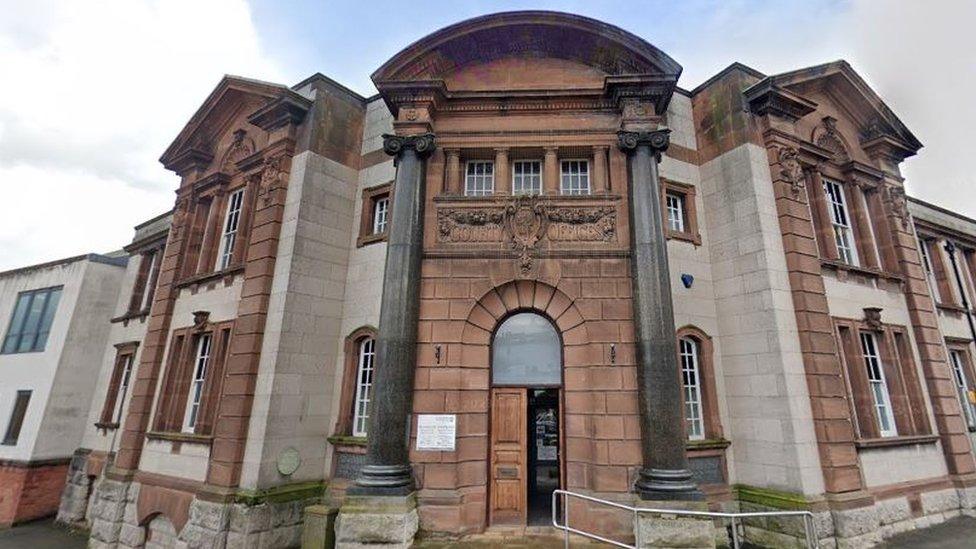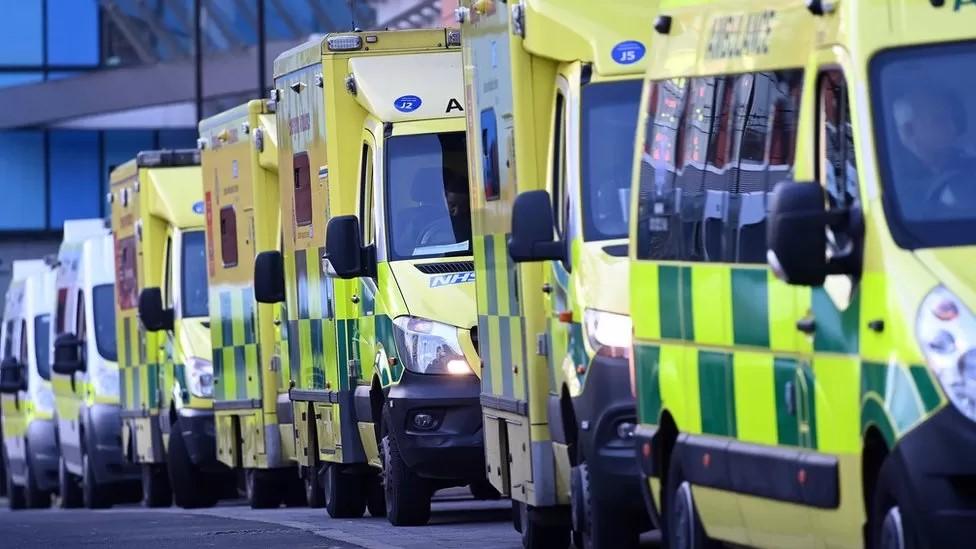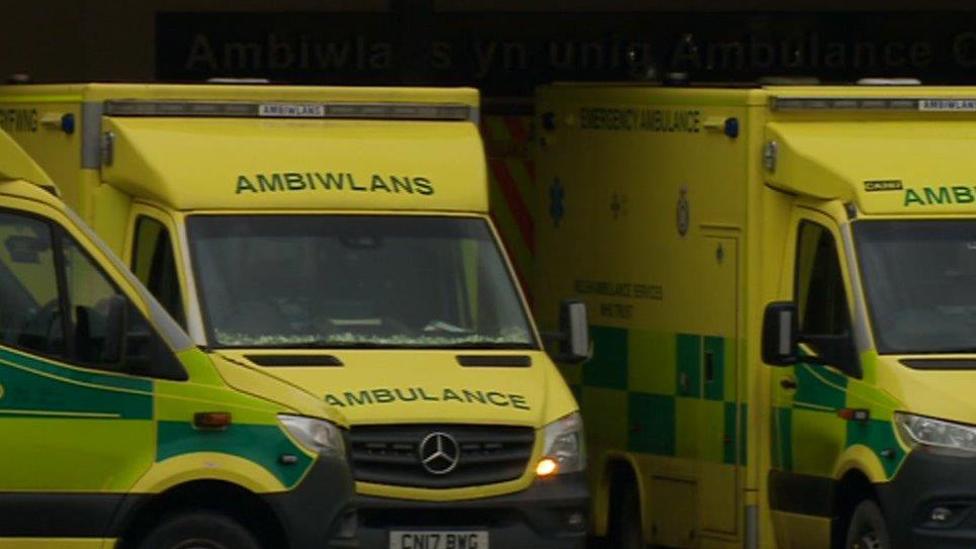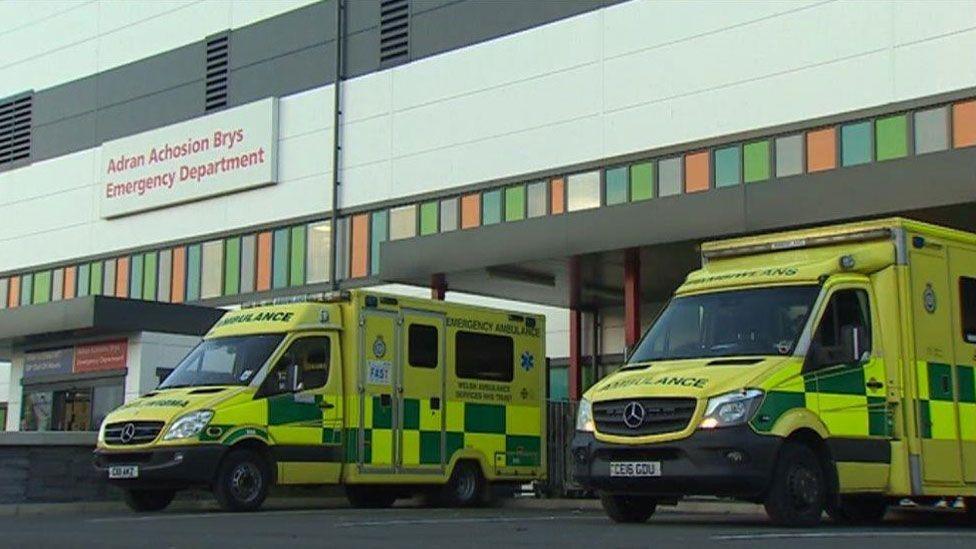NHS: Woman, 77 died following 999 call handler failures, inquest hears
- Published

The coroner's court in Ruthin heard Rashdah Bhatti laid in a puddle of blood for three hours waiting for an ambulance
A woman died from blood loss after her condition was incorrectly categorised by call handlers, an inquest heard.
Rashdah Bhatti, 77, died at her home in Denbighshire on 14 June after haemorrhaging from varicose veins in her legs.
The Welsh Ambulance Service said changes have been made to ensure it does not happen again.
But senior coroner John Gittins said he was not convinced they were enough to prevent a similar incident.
On Monday the coroner in Ruthin ordered a prevention of future deaths report to help avoid future mishandling of 999 calls.
Mrs Bhatti was found in a puddle of her own blood by relatives at her home on Linden Walk in Prestatyn.
Over the course of three hours, seven separate emergency calls were made by Mrs Bhatti's stepson Dr Ibrahim Bhatti and daughter-in-law Laiqa Ahmed.
They were told it would take an ambulance between two and five hours to get to her home.
Dr Bhatti said: "It was preventable. If she'd had timely treatment she might well be with us now."
Mrs Ahmed said it had been "devastating to be present without help" and it has had "lasting impact" on her family.

The Welsh Ambulance service said a quarter of their vehicles were queuing outside hospitals at the time of the family's calls
Welsh Ambulance Service manager Gill Pleming told the hearing a quarter of their ambulances were queuing outside hospitals when the first call came at 18:25 BST.
She said Mrs Bhatti's case was initially categorised as "amber one", but the following calls were wrongly noted as the less severe "amber two" after three separate call-handlers did not account for the haemorrhage.
Advice on how to control the bleeding was also not given over the phone.
When Mrs Bhatti stopped breathing, her case was upgraded to the immediately life-threatening red category.
CPR advice was then given to Mrs Ahmed and paramedics arrived within 10 minutes, but they could not save her.
Ms Pleming said alongside system changes, calls for patients who are not alert and are haemorrhaging would now be categorised as red.
Training needs have also been addressed and advice on bleeding and varicose veins had been refreshed, she said.
Coroner Mr Gittins said he welcomed the improvements, but would issue a prevention of future deaths report with the Welsh Ambulance Service.
He said this was because there was not "adequate evidence" that a risk of human error by call handlers had been eliminated.
Mr Gittins said the report would not cover the continuing problem of ambulance delays because work to tackle the issue was already ongoing.
The coroner recorded a cause of death of haemorrhage.
- Published14 March 2023

- Published20 April 2023
